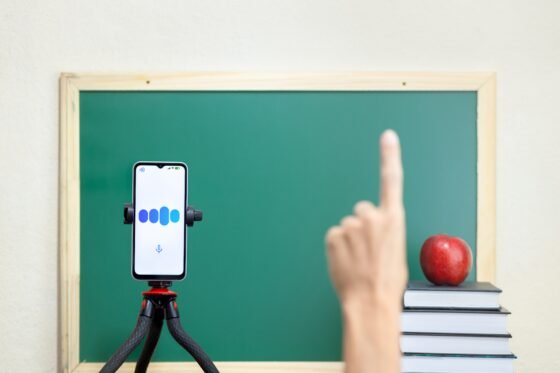By David Stephen —
The theme for the [August, 9] 2025 International Day of the World’s Indigenous People was Indigenous Peoples and AI: Defending Rights, Shaping Futures. On July 29, 2025, OpenAI introduced study mode. A new way to learn in ChatGPT that offers step by step guidance instead of quick answers. Google [August 6, 2025] is providing $1 billion to support AI education and job training programs and research in the U.S.
Why is it unlikely for an individual to know everything about an area of medicine in 2 weeks? Just the knowledge, without practical, as much as a resident, in that timeframe? Assuming there is a good tutor, all forms of learning methods and facilities, why does learning still take time?
If the purpose is to pass an exam, or for findings, curiosity, or tasks, what are the chances of knowing enough to recall — or comprehending more?
Why is it easy to read the news, understand and sometimes remember the [gist of] reports after many months? Even in cases where stories are sometimes new, it is possible to digest and recall. This is different from learning [say] advanced geometry or physiology. What are the limitations of learning, for humans, that the promise of a new learning resource may not solve?
Also, there is something to learning that might make it seem easy or difficult. Timeframe, objective, subject type, prior experience, situations and so forth, may determine the procession of learning. There is, however, something about all learning, it is the ability to possess that knowledge, and use it — socially, casually, professionally or otherwise. If the reason to acquire knowledge is already possible without the necessity to acquire it, learning may lose its spark.
There is already a lot of buzz about AI Tutor: all patient, ever available, all explaining, all knowledge areas, sequential, never complaining, all supportive, same pace, descriptive at any level, switch ready per language, subject, even in personal needs or emotions, anything to be asked and so forth, AI — all possibility — Tutor.
The solution of AI Tutor is the solution of AI Worker or AI Staff. AI can do a lot of the things it can instruct. In cases that it cannot, it can assist someone that may have no expertise, for a task that does not require total precision — excluding the need for a professional. Aside from the work replacement of the same AI, AI Tutors are unoriginal in terms of moving knowledge forward in how humans learn.
What is Learning in the Brain?
When an individual is learning [say] harmonic numbers, what is the process like, in the brain? This question means that in reality, there is the topic, and in the brain, there is what the topic is. What does it mean that the thing in reality gets to the brain and stays there? What does it mean to be familiar with it to solve problems in different directions and to answer questions around it, unaided?
These questions are not about memory encoding, consolidation, retrieval, engrams, prediction and much else. Simply, what in the brain, is the [construction or architecture of the] topic and what is the process like?
What would have been human-centered artificial intelligence solution for learning or tutoring could have been an accompanying display, to show that this sensory information [sight or auditory], is relaying this way in the brain, it is using a particular attribute of [responsible] components within the brain, and it is not sticking yet because the components are not finding a configuration [or assembly] and so forth. Because of the abstractions [in the topic], it is best to learn it in a certain way, then give sometime, add in another, do some activity and so forth, aiming at the attributes [of the components] at the time.
This would be like learning and showing a parallel of what is occurring in the mind to the closest approximation [conceptually]. It may indicate that instead of getting discouraged, blaming oneself or feeling bad about not learning fast enough, that the process in the mind is also known, while comparing reasons that other things seem easier.
Brain Rot : Social Media : AI Slop
Why is it easy to scroll social media? Why is it easy to have fun conversations? Why is reading the news easy? Why do AI generated stuff — combined in directions — opposed to reality, interesting? Why is watching TV or playing video games cool? Why are several other things that may not even be readily known easier to follow and recall? Even if the magnitude of these is not the same, why is it still possible to use the same medium and change the contents to [say] biochemical pharmacology, yet not understand or recall?
Humanity has reached an era that a working model of human intelligence is probably the most important research to breakthrough. Humans competing with humans had several variances, still lots of people could find roles and places. Now humans are against AI. It does not even matter as much that someone is smarter or more analytical or anything of the sort. AI is ahead in a lot of common areas of need. A direction to explore equality is complex theoretical foray into the mechanism of the human brain, for memory and intelligence.
This would mean that all the talk of brainrot, doomscrolling, hard of learning, and so on, would find a model to show how the brain does those including why new language learning is difficult as an adult — for several people. Conceptual brain science holds the cards, directly for now, since ‘learn the next fad so that you can look for work’ is outdated because AI can do the work or make more people less necessary. Also, there is no direct [electrical and chemical signals] model of how to learn, to evolve from the primitive objective of learn, just to earn.
Thinking Machines Lab
Instead of: AI can teach you; it could be AI can show you how the components of the human brain learn, so that if you have to learn without AI, this is how you do it. This may be an important direction for any company that wants to put humans at the center. The aim is to reduce the inevitable AI dependency and to ensure that as AI improves, humans independently leap forward — exponentially. To avoid infinite catching up, peaking where AI was.
If humans get better at human intelligence, there could be probabilities for people to solve problems where they are, since intelligence is how memory is used. Humans are still more creative than AI, so if humans have ways to improve memory by knowing how to better use it, it might change the paradigm for the future of the world.
There are humanity questions about every AI product and service. How does AI improve humans such that if AI is unavailable or incapable, it would have provided that help for humans?
“Thinking Machines Lab exists to empower humanity through advancing collaborative general intelligence.”
In general, that machines can aid humans is not the news but if machines can help humans and without machines, humans can retain and use that ability, that will be revolutionary.
It does not even matter if good people own the AI that does — and becomes — everything. It is better for the world if humans are better, as humans anywhere, because a company centered AI for humanity’s direct and unattached benefits, with possibilities for immense profitability along the way.





